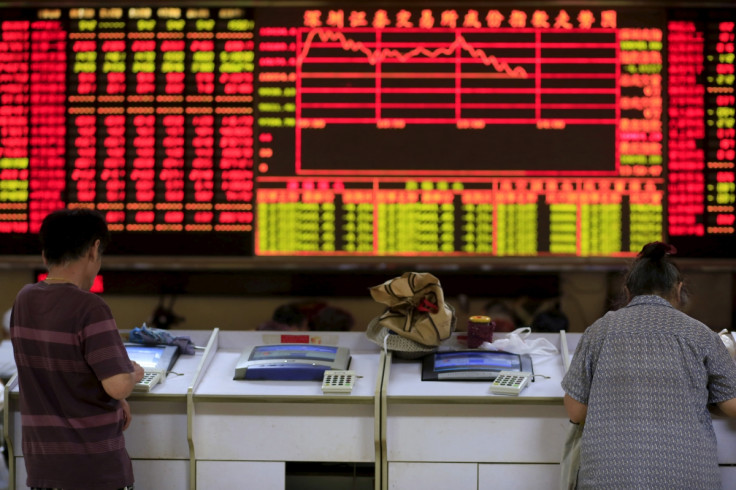Asian markets extend losses following weak Wall Street lead, Chinese data

Stock markets across Asia were in the red following a decline on Wall Street. The fall also reflected weak Chinese trade data, including low inflation in the world's second-largest economy.
While Japan's Nikkei 225 slid 1.89% to 17,891, South Korea's Kospi dropped 0.47% to 2,009.55 and Hong Kong's Hang Seng was down 0.71% to 22,441.11 midway through trading on 14 October (Wednesday). India's Sensex was down 0.25% to 26,778.62
The Shanghai Composite, which lost close to 40% of its value since summer, was down 0.91% to 3,263.17 and Australia's S&P/ASX 200, which recently hit a seven-week closing high, was down 0.11% to 5,197.25.
The consumer-price index in China rose 1.6% during September, in comparison to a 2% rise in August. Its producer-price index fell 5.9% in comparison to a year ago, marking its 43<sup>rd consecutive month of deflation.
Angus Nicholson, a market analyst at brokerage IG, said, "This brings up concerns about how China is going to start pulling growth together as we approach the deadline for its 7% [gross domestic product] target [for year-end]."
Worries over China's slowdown have led to a decline in stock markets across the world since August. Latest Chinese trade data has only increased expectations for further corrections in the stock markets. IG said it expects Beijing to cut interest rates and reduce the minimum holding amount reserve banks are required to hold.
Meanwhile, the Monetary Authority of Singapore eased its currency policy in response to a softer outlook for the global economy. The central bank, which uses a managed exchange rate instead of interest rates as its primary monetary policy tool, said it would target a slower appreciation of the Singapore dollar against a basket of currencies.
Singapore's FTSE Strait Times Index was down by 0.40% to 2,972.89. Markets in Indonesia and Malaysia were closed for a local holiday.
© Copyright IBTimes 2025. All rights reserved.





















